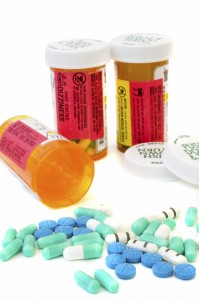 Whether you know it or not, many of your friends are taking anti-depressant or mood stabilizing medication. Abilify, Seroquel, and Cymbalta are the 4th, 6th and 8th top selling drugs in our country. Now, don’t get me wrong, there are many people with serious mood disorders that need these meds, and also plenty of people who are going through a rough time and might temporarily need antidepressants to keep them afloat. But the average person should only need these medications temporarily, and instead find themselves taking Lexapro, Zoloft, Paxil, Cymbalta and others for years without ever having a discussion with their doctor about when and how to get off them.
Whether you know it or not, many of your friends are taking anti-depressant or mood stabilizing medication. Abilify, Seroquel, and Cymbalta are the 4th, 6th and 8th top selling drugs in our country. Now, don’t get me wrong, there are many people with serious mood disorders that need these meds, and also plenty of people who are going through a rough time and might temporarily need antidepressants to keep them afloat. But the average person should only need these medications temporarily, and instead find themselves taking Lexapro, Zoloft, Paxil, Cymbalta and others for years without ever having a discussion with their doctor about when and how to get off them.
Here is the conversation that I have every day in my office. Patient: “So, what’s the big deal? I’ve been taking Lexapro for 8 years, and I feel okay, and honestly I’m afraid to stop, to rock the boat.” Now keep in mind that this same person has come to see me because they have gained weight, have a low sex drive, brain fog, and low energy. They don’t see the connection between long term SSRI’s (selective serotonin reuptake inhibitors) and these symptoms, but I do. Over time, these SSRI’s cause an overall depletion of serotonin in your brain, and that’s why you become dependent on the medication and why it is really hard to get off. And these SSRI’s have undesirable side effects like the ones I listed above.
But this doesn’t mean you can’t stop. I love helping people get off their meds, it is one of my favorite projects. The main strategy is to support and boost serotonin levels with food and supplements, while at the same time making a plan to taper very slowly off the prescription—the tapering off process can be supervised by me or your prescribing doctor or psychiatrist. We always work together as a team. And of course this plan is for when you feel ready, and for when the tough time you went through has passed.
From a Functional Medicine approach, there are many other components to having a good mood, and so in addition to supporting serotonin, we go a thorough check list. Here are the top 2 foundational causes of most mood issues:
Food and Nutrients: How and what you eat every day has a huge impact on mood. Also, there are many nutrients that are needed to make your mood neurotransmitters like serotonin. If you are deficient in any of these, you can feel blue and depressed. This is very simple to fix. Mary will discuss this in our nutrition section below.
Adrenals: These glands make neurotransmitters, too, notably the catecholamines that are supported when you take Wellbutrin. Healthy adrenals will help you be more focused, upbeat, and put a pep in your step. Elizabeth will discuss the importance of managing stress to keep both you and your adrenals happy.
When you are ready, Elizabeth and I are here to help you achieve your goals. We know you can do it because we’ve already helped hundreds of people make this transition off their medication. Now it’s your turn!

